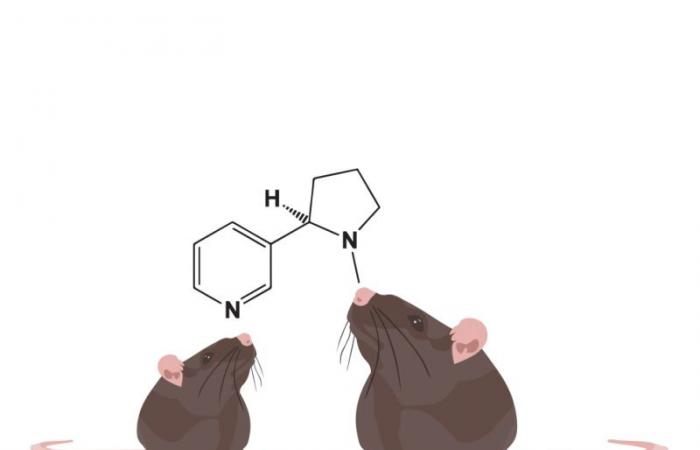Exposure to nicotine during adolescence has long been associated with an increased risk of addiction to the drug in adulthood. However, the precise mechanisms by which nicotine disrupts brain development and promotes this risk of addiction are still poorly understood. The study, published in the journal Nature Communicationssheds new light on this question.
Adolescent Mice Exposed to Nicotine Show Prolonged Vulnerability to Nicotine
The scientists first found that adolescent mice had increased sensitivity to the rewarding effects of nicotine, both physiologically and behaviorally. The scientists then showed that mice exposed to nicotine during their early adolescence demonstrated, once adults, behaviors and physiological responses similar to those observed in young adolescent mice. In other words, exposure to nicotine during adolescence seemed to freeze these animals in a prolonged state of vulnerability, characterized by increased sensitivity to the rewarding effects of nicotine and decreased responses to the anxiety-inducing effects of the substance. .
This phenomenon is linked to a disruption of the circuits involved in reward management.
Scientists have established that this phenomenon is linked to a disruption of the circuits synthesizing dopamine, a key neurotransmitter in the management of rewards. More specifically, nicotine affects two groups of dopaminergic neurons differently depending on their projections: neurons projecting to the nucleus accumbens, a central brain region involved in reinforcement and motivation, were particularly affected in adolescent mice, but also in adults who had used nicotine during adolescence. Conversely, neurons projecting to the amygdala, a region playing a role in the management of emotions and fear, did not show comparable disturbances.
These results suggest that exposure to nicotine during this critical developmental period permanently imbalances dopamine circuits, thereby maintaining individuals in an immature brain state, and making them more likely to develop addiction as adults. By restoring the balance of this dopaminergic neuronal activity, scientists were able to restore normal behavior in adult mice that had been exposed to nicotine during adolescence, demonstrating that targeted interventions aimed at restoring the activity of the dopaminergic circuit reward can reduce a learned vulnerability to drugs.
Health






